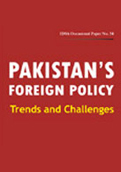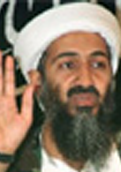Pakistan’s Foreign Policy: Trends and Challenges
Pakistan's most critical foreign policy concerns in the last few years relate to the deadlock in relations with India and India's success in isolating Pakistan regionally and internationally due to its support for terrorism. The success of its peace overtures to Afghanistan are constrained by various complexities arising out of the unpredictable situation in Afghanistan and the role of external powers like the US, China and Russia in the ongoing peace process.
- Sumita Kumar |
- 2019 |















